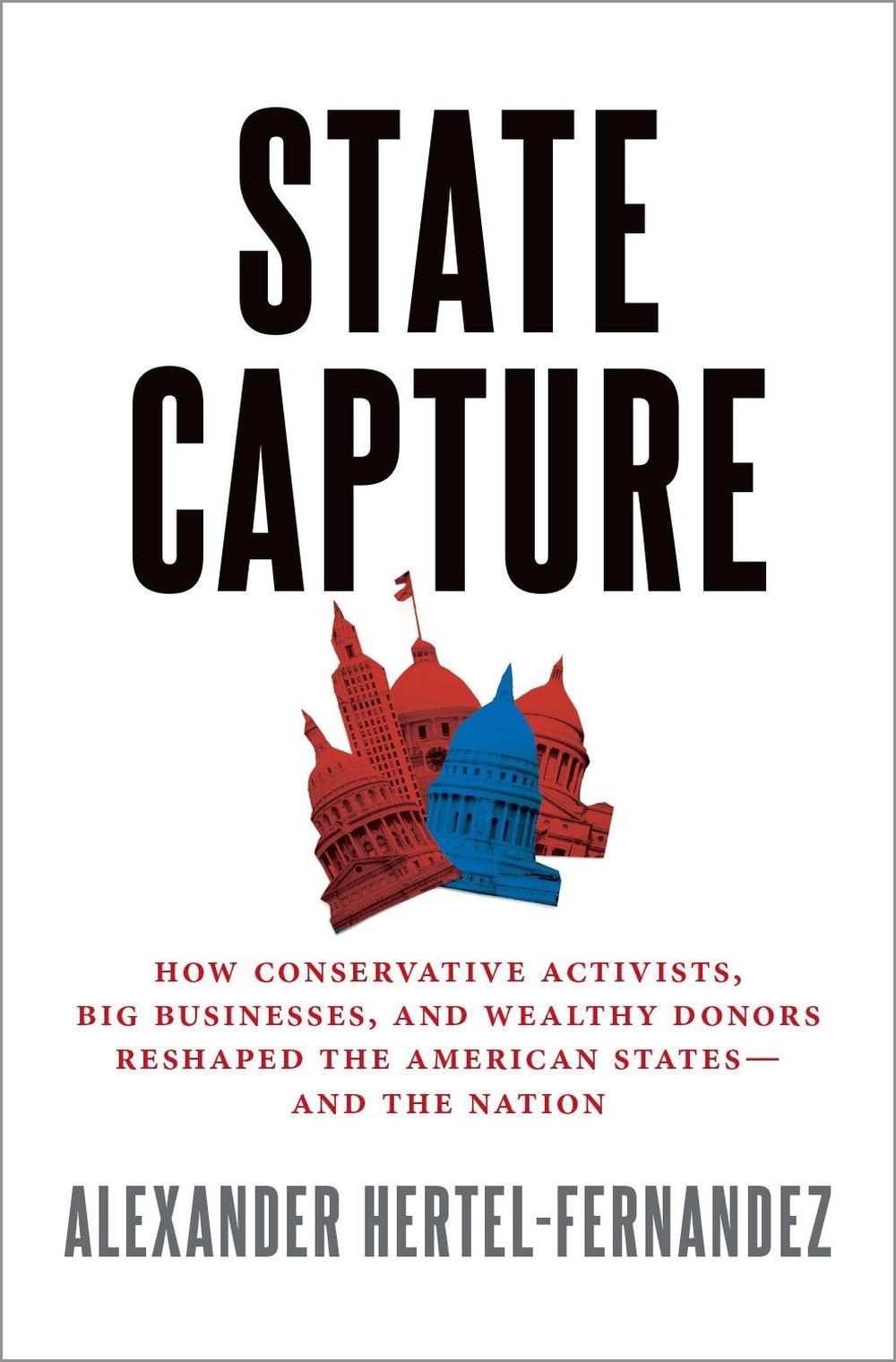
State Capture
How Conservative Activists, Big Businesses, and Wealthy Donors Reshaped the American States -- and the Nation
- Hardcover
384 pages
- Release Date
11 February 2019
Summary
Most Americans pay little attention to the massive number of elections that occur at the state level every year. Yet cumulatively, a party’s success in state-level races across the country can produce major shifts in policymaking and governance. That is precisely what has happened in the US since 2010. In a wave election that year, the Republican Party began their ascendancy in state-level elections, and by 2016 had solidified their dominance. The party now fully controls 25 state legislature…
Book Details
| ISBN-13: | 9780190870799 |
|---|---|
| ISBN-10: | 0190870796 |
| Author: | Alex Hertel-Fernandez |
| Publisher: | Oxford University Press Inc |
| Imprint: | Oxford University Press Inc |
| Format: | Hardcover |
| Number of Pages: | 384 |
| Release Date: | 11 February 2019 |
| Weight: | 680g |
| Dimensions: | 239mm x 165mm x 25mm |
You Can Find This Book In
What They're Saying
Critics Review
“In his systematic and impeccably researched work, Hertel-Fernandez discusses why liberal efforts to counter the troika have floundered and why this infiltration of right-wing state policy endangers the quality of American democracy. A highly specific, important study in understanding why attention to state legislatures and local elections across the country is increasingly crucial.”- Kirkus”Coming at a time of deep political crisis and polarization, State Capture is a wake-up call for anyone who has wondered how Democrats lost control of so many state legislatures. Through detailed research that spans decades, Hertel-Fernandez paints an alarming picture of how far-right donors captured our country’s policy making. He also provides a blueprint for how to take back government so it truly represents the stated desires of American citizens.“- JosephE. Stiglitz, winner of the 2001 Nobel Prize in economics”State Capture is revelatory in two ways. It uncovers, in riveting and rigorous detail, how conservative business groups and wealthy activists have reshaped American public policy one state at a time. It also reveals a new frontier in the engaged study of our federated democracy- one that has found a worthy intellectual pioneer in Alex Hertel-Fernandez.“- Jacob S. Hacker, Stanley B. Resor Professor of Political Science, Yale University, and author of TheGreat Risk Shift”In this outstanding book, Alex Hertel-Fernandez systematically documents how the states, once celebrated as a diverse set of locally-grounded ‘labratories of democracy,’ are increasingly subject to capture by powerful and well coordinated national interest groups. The message of State Capture is compelling and troubling: more and more, major policy choices in states where Republicans gain power reflect the activites of narrow interests able to deploy politicalresources on a national scale rather than the concerns and preferences of local voters.“- Paul Pierson, John Gross Professor of Political Science, UC Berkeley, and co-author of Winner-Take-AllPolitics and American Amnesia
About The Author
Alex Hertel-Fernandez
Alexander Hertel-Fernandez is an Assistant Professor in Columbia University’s School of International and Public Affairs. His research has appeared in the American Prospect, Democracy Journal, The New York Times, The New Yorker, and The Washington Post, as well as numerous scholarly journals. He is also the author of Politics at Work (Oxford, 2018).
Returns
This item is eligible for free returns within 30 days of delivery. See our returns policy for further details.




